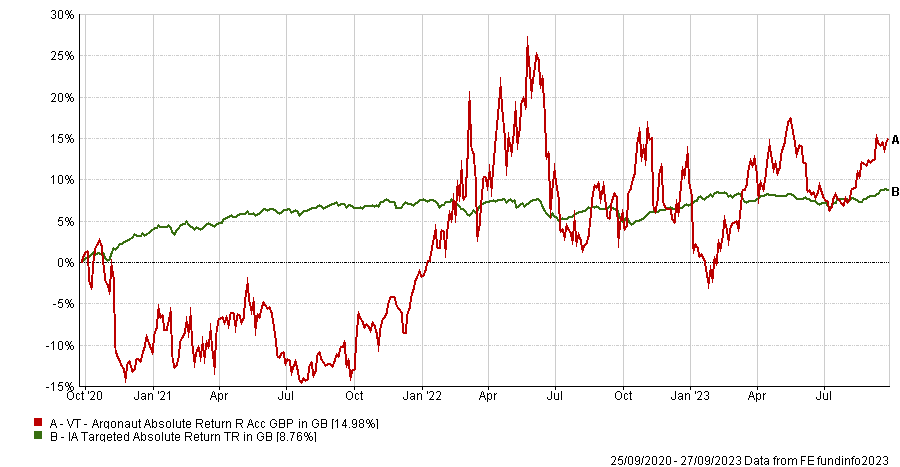Recent political developments – including prime minister Rishi Sunak’s postponement of the UK’s net-zero goals – have brought the energy transition back to the centre of the political debate, with Barry Norris, FE fundinfo Alpha Manager of VT Argonaut Absolute Return, calling this “a watershed moment” where a “monumental misallocation of capital” is being exposed.
He claimed the concept of net zero is coming to an end with many companies in the environmental, social and governance (ESG) space finding it difficult to exist outside government subsidies and the zero-interest-rates backdrop that previously prevailed.
“From the Uxbridge by-election onwards – and with Sunak's bounce in the polls since he announced the postponement of net zero – the political debate is shifting in what has been a watershed moment,” he said.
“We were previously told the energy transition would be economically painless and would mitigate the climate warming up, but irrespective of the latter claim, the former is never true. The debate just hasn't been honest with people about the costs of decarbonisation or even whether it's actually achievable.
“The energy transition is actually a monumental misallocation of capital and a generational policy folly,” he concluded.
For many products that investors are encouraged to switch to in the name of environmentalism, Norris sees no environmental benefit. Instead, they pose the potential for “disastrous economic consequences” in what he called “a complete environmental fraud”.
In the manager’s crosshairs was the wind industry, which he said “lied about how cost competitive it was” as it is “only cost competitive above £100 per megawatt, which is twice the cost of gas-fired turbines”.
“Solar and wind are incredibly energy-intensive in the manufacturing process, very land-intensive and only deliver intermittent power, the cost of which falls on the consumer. It's just the non-starter in what's going to power our economy. It's a complete waste of time,” he said.
Another area under fire from Norris was electric vehicles (EVs), with the making of lithium batteries being "incredibly energy-intensive”.
In China, it “requires a huge amount of coal-fired power generation”, meaning the carbon footprint of making the battery is “probably the equivalent of driving a diesel or petrol car 100,000 miles”.
“Before you've ever driven your new EV, you've got a carbon footprint equivalent to 100,000 miles of driving your old diesel or petrol car, so it's actually illogical to replace your old diesel with an EV unless you're going to drive it more than 100,000 miles,” Norris said.
“Lithium-ion batteries probably don't even last more than 100,000 miles. So again, another product that is a complete environmental fraud.”
For Norris, the problem with all these products, including heat pumps and hydrogen, is that they make little economic sense because they are inferior to what they are replacing.
“What’s being highlighted today is that there's no ability to engage in any economic logic. No energy transition before has required any government intervention. Coal replaced wood and oil and gas replaced coal because they were better economic products than the one before,” he said.
In the long/short fund he runs, Norris does have some long exposure to the energy sector in the form of nuclear power, which he argued was the only option that was superior to fossil fuels.
The rest of the renewable energy market he has short positions in, with a third of the short book in “stocks that have been over-hyped in this energy transition, add no economic value at all and only exist because of government coercion and zero interest rates”.
Performance of fund vs sector and index over 1yr
Source: FE Analytics
“This wall of ESG money that has been raised, presumably with good intentions, is just investing in zombie companies, unfortunately,” he said.
“The reason why politicians backed the energy transition is because they thought it was popular. What they're actually finding now is it's unpopular, as it negatively impacts standards of living, potentially reducing us to pre-industrialization levels.”
Meanwhile, the fund management industry as a whole is too blind to see, Norris claimed.
“They've become automatons who don't think for themselves, but only follow the political compliance regime that somebody has written for them.”
“If the rest of the management industry hasn't understood the consequences of the energy transition or still believes the propaganda that they're being told on a daily basis by the hundreds of ESG publications that seem to resemble an old Soviet news agency, in the land of the blind, the one-eyed man is king,” he concluded.





